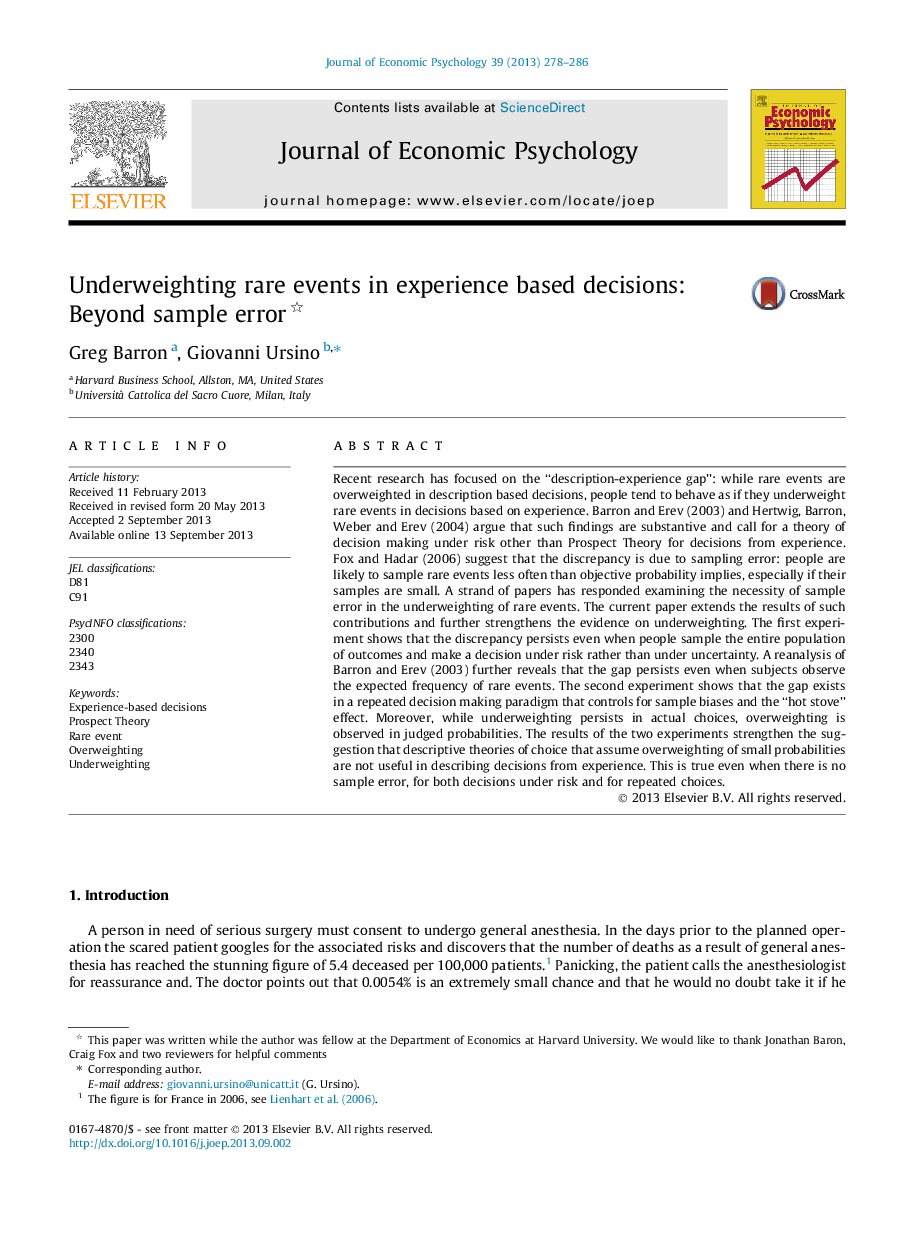| Article ID | Journal | Published Year | Pages | File Type |
|---|---|---|---|---|
| 7244966 | Journal of Economic Psychology | 2013 | 9 Pages |
Abstract
Recent research has focused on the “description-experience gap”: while rare events are overweighted in description based decisions, people tend to behave as if they underweight rare events in decisions based on experience. Barron and Erev (2003) and Hertwig, Barron, Weber and Elke (2004) argue that such findings are substantive and call for a theory of decision making under risk other than Prospect Theory for decisions from experience. Fox and Hadar (2006) suggest that the discrepancy is due to sampling error: people are likely to sample rare events less often than objective probability implies, especially if their samples are small. A strand of papers has responded examining the necessity of sample error in the underweighting of rare events. The current paper extends the results of such contributions and further strengthens the evidence on underweighting. The first experiment shows that the discrepancy persists even when people sample the entire population of outcomes and make a decision under risk rather than under uncertainty. A reanalysis of Barron and Erev (2003) further reveals that the gap persists even when subjects observe the expected frequency of rare events. The second experiment shows that the gap exists in a repeated decision making paradigm that controls for sample biases and the “hot stove” effect. Moreover, while underweighting persists in actual choices, overweighting is observed in judged probabilities. The results of the two experiments strengthen the suggestion that descriptive theories of choice that assume overweighting of small probabilities are not useful in describing decisions from experience. This is true even when there is no sample error, for both decisions under risk and for repeated choices.
Related Topics
Social Sciences and Humanities
Business, Management and Accounting
Marketing
Authors
Greg Barron, Giovanni Ursino,
